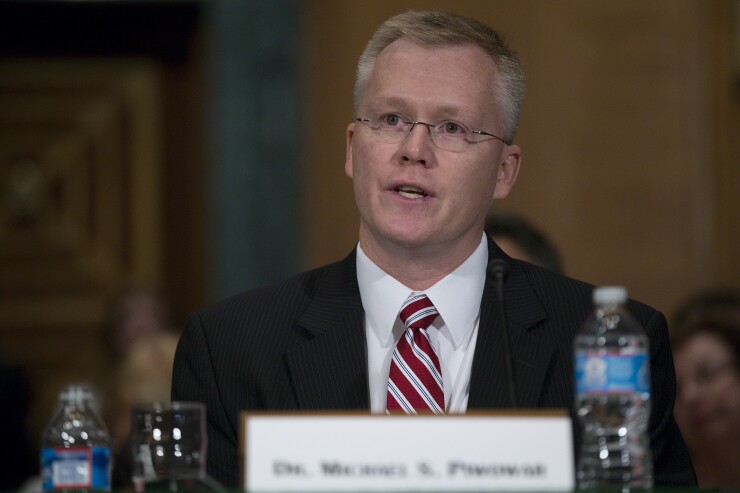Receiving Wide Coverage ...
Vote of confidence: Activist investor ValueAct Capital Partners said it owns a $1.2 billion stake in Citigroup. The Wall Street Journal says the holding, which amounts to about 0.7% of the bank, is “a bet that the giant bank’s strength as a service provider to corporations
That relatively small holding, which would make ValueAct the bank’s 25th largest shareholder, gives “the activist hedge fund
Meanwhile, in other stockholder news, famed investor Carl Icahn appears to have “called time on his campaign” against AIG. Icahn Enterprises, his investment vehicle, no longer lists the insurance company as one of its “
Jumping the shark: Researchers at the Federal Reserve Bank of San Francisco have pegged what they say is the exact date the price of bitcoin peaked. The date is Dec. 17, 2017, when bitcoin hit a record high of $19,511. It has since dropped more than 50%.
What happened on that date? CME Group began listing bitcoin futures, which
Comments by the top two executives of Berkshire Hathaway over the weekend haven’t helped. On Saturday chairman Warren Buffett told CNBC that bitcoin was "
"I like cryptocurrencies a lot less than you do," said vice chairman Charlie Munger. "To me, it's just dementia. It's like somebody else is trading turds and you decide you can't be left out."
But that apparently isn’t deterring Intercontinental Exchange, the parent company of the New York Stock Exchange, from working on creating an
AG gone: New York State Attorney General Eric Schneiderman, one of Wall Street’s leading regulators, announced Monday he will resign effective after work Tuesday, after the New Yorker magazine published an article in which four women claimed he physically abused them. Schneiderman denied the claims but said they “will effectively prevent me from leading the office’s work at this critical time.”
Wall Street Journal
Stepping down: Michael Piwowar, a Republican member of the Securities and Exchange Commission who the paper credits with “jump-starting the SEC’s deregulatory efforts” when he was acting chairman for five months after President Trump’s election, is leaving the agency after nearly five years. His departure, scheduled for July, would leave the agency with four commissioners, “meaning some votes could be deadlocked if the SEC’s two Democrats oppose measures favored by Chairman Jay Clayton,” a Republican who was appointed by Trump. “That could slow Mr. Clayton’s progress on his priorities, which include stricter rules for brokers advising retail investors and

Financial Times
Acid test: A string of defaults by commercial borrowers even in the middle of “an unbroken streak of economic expansion that is among the longest in U.S. history” has “become an early test for the ‘shadow’ finance providers that are replacing traditional banks” in lending to companies with weak credit, the paper reports. Companies with junk-rated credit borrowed $564 billion last year, “topping the high-water mark reached on the eve of the financial crisis.”
“Even some of those responsible for crafting the deals worry that
New York Times
Moonlighting: Mick Mulvaney “has seized on his second job as the interim chief of the Consumer Financial Protection Bureau as an opportunity to
American Banker notes Mulvaney has
Quotable
“We believe that in this era of banks, the winners and losers will be decided by strategic focus,





